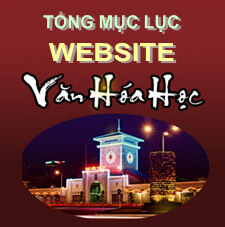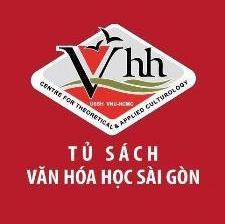Washington Profile: The end of communism brought with it the end of Marxist-Leninist thought in Russian academic life, and therefore created an ideological vacuum. What, if anything, is taking its place in the post-communist intellectual space? Do you see any continuation with the ideology or methodology of dialectical materialism?
Marlene Laruelle: Many ideological elements have replaced Marxism. In the academic realm that I work, new disciplines have appeared which aim to offer a global explanation of the world. These disciplines include culturology, geopolitics, conflict studies, ethno-politics, etc. Take culturology, for example. Today, it is nearly always a required course in the first year of university, whether in human sciences, exact and natural sciences, law, economics, medicine or technical disciplines. Culturology is most often taught in the second year in the form of an introduction to philosophy. In many universities, especially in the provinces, teachers of culturology are former teachers of Marxism, dialectical materialism (diamat) or occasionally atheism. Culturology claims to be the precise opposite of what Marxist teaching was in the USSR. Though the latter is used as a counter-example, the relationship between them is in fact far more complex: culturology turns out to be a mirror of Soviet Marxism, since it seems to reflect it by reversing its terms. This kinship, which is of course denied, appears quite clearly in the epistemological and methodological area. Even though culturology sees itself as a rehabilitation of the Russian intellectual tradition of debate about national identity, it cannot be understood without the reference to Soviet Marxism, of which it is in many ways the continuation: its desire for a total explanation of the world, its aspiration towards a scientific status inspired by the exact sciences, its relationship with truth appear to be borrowed straight from Soviet science. And so it combines a nationalist discourse with classic ideas similar to Slavophile teachings (condemning Western universalism, insisting on Russia’s messianic destiny) and scientific stereotypes inherited from diamat.
Washington Profile: What is the role of the "Russian Idea" in Russia? What does it mean to Russians today?
Laruelle: It is difficult to talk about the role of the “Russian idea” today in general terms. In the academic realm, many of the textbooks of culturology (not all, but a majority) are a kind of institutionalization of the debates about ‘the Russian idea.’ Culturology presents itself both as teaching this thought and as continuing it after what is seen as the Soviet hiatus. It does not restrict itself to presenting as a historical object the thinking that evolved in the 19th century on the question of national identity, but sees it as a contemporary reality that still has meaning for today’s Russia. It considers itself to be an integral part of this discourse, invites students to continue it and sees it as entirely legitimate for post-Soviet Russia.
Washington Profile: What impact are these new disciplines having on Russian attitudes about the West and the rest of the world?
Laruelle: With its obsession with the nation, culturology takes its place in its own times and among the most current fashions in the post-Soviet space. Indeed it is attempting to channel, classify and ‘make scientific’ contemporary concerns about identity. Far from presenting the nation as an intellectual, political construct, arising along with others from the profound social upheaval brought about by economic modernity, culturology is elaborating a ‘primordialist’ discourse around community. This reification of the object is visible in the use of the terms ‘people’, ‘ethnos’, ‘nation’ or ‘mentality’, all of them interchangeable. In all the textbooks Russia is portrayed as a world apart. The classic notion, in 19th-century Russian thought, of the bridge or crossroads between ‘East’ and ‘West’ always takes up at least one chapter. The clichés wheeled on are the most traditional ones, which repeat old Slavophile assumptions: whereas the West is historical and characterized by individualist and materialist values, the East is ahistorical and is distinguished by its collectivism and spirituality.Culturology claims not to be interested in Russian history alone but world history, but this presumption of universality is accompanied by a rejection of Western universalism, which is alleged to crush or deny nations. In fact, culturology’s universality remains very limited, since the chapters devoted to non-European worlds are almost, and in some textbooks, totally non-existent; it appears that only Russia is challenging the West’s claim to universality. This culturology seems trapped in the traditional Slav dichotomy between Russia and the West and cannot bring into focus other ‘regional civilizations,’ such as Asia or Africa, to counteract what it understands as Europe’s identity imperialism. All the textbooks give special emphasis to Russia, which takes up between one-third and two-thirds of the text.
Washington Profile: How receptive are students and the populace at large to the ideas that you say are becoming entrenched in academic discourse? Is this ideological framework likely to see a similar fate as Marxism, in terms of the private, and then outright rejection of its ideas?
Laruelle: It is hard to gauge the level of reception from students, since there is not much research on this topic. It is possible to compare the future of this discourse with that of Marxism, and say that it will not impact the thoughts of individuals. One can also just as readily propose the opposite scenario: the existence of disciplines like culturology prove that the Marxist-Leninist vulgate, although rejected in daily life, deeply penetrated the systems of thought of many citizens, who continue to seek meaning through alternate globalizing visions of the world. What is certain is that in the public opinion polls conducted in Russia (especially by the Levada Center), we see that xenophobia among youth against ‘outsiders’ is growing sharper, and the idea that Russians constitutes ‘a world apart’ is developing alongside this. These tendencies may not be a direct consequence of these new academic disciplines, but culturology is just one of the forms of expression of the mainstream nationalism that we are seeing in Russia.
Washington Profile: What parallels, if any, can you draw between the ideological processes that are occurring in today's Russia, and those that are occurring in the West, and particularly, in the U.S.? Is this a uniquely Russian phenomenon or part of a more universal ideological movement?
Laruelle: I think that Russian culturology can be seen as an epiphenomenon of a more general trend that arose in the West with the end of the Cold War, the supposed death of ideologies and the disappearance of the opposition between communism and capitalism. Western countries have also witnessed the re-emergence of (geo)cultural or civilizational explanatory modes: the division of Yugoslavia, for example, has been presented as the resurgence of the historical and religious line that separates the old Hapsburg Balkan lands under Ottoman domination, while economic difficulties - meaning that richer countries or regions no longer wish to subsidize poorer ones - have received less emphasis. The success of Samuel Huntington’s “Clash of Civilizations” and the return of geopolitical discourse, especially in the U.S., are only the tip of the iceberg; with the intellectual retreat of Marxism, socio-economic explanations appear to be fading at the expense of the idea that only analysis of national identities, cultures and religions gives us the explanation of today’s world. So culturology is only the Russian version of a more universal ideological movement we can also find in the U.S.
Washington Profile: Projecting out, what do you see could be the impact of these processes on Russia's domestic and foreign policy?
Laruelle: I think that the spirit of nationalism could have an impact on other issues, although the domestic effect is likely to be greater. The public attitude concerning the management of the war in Chechnya is a troubling example. The relative lack of a reaction in the face of authoritarian policies and the limitation of civil liberties also seem to reveal the effects of the rise of nationalistic feelings. With respect to foreign policy, this phenomenon could reinforce anti-western sentiments in Russia. However, in any case, the desire for Russia to affirm its autonomy and refuse to align systematically with either the U.S. or Europe (which are themselves often in opposition) is understandable, and would occur even without this kind of discourse.
Washington Profile: If things continue on their present course, what do you think the Russian academic or intellectual landscape will look like in 10-15 years? Will it be more diverse in terms of the availability of competing viewpoints and ideologies, or more centralized around the concepts we have been discussing?
Laruelle: It is impossible to predict what will happen in a country in a decade. Things changed so rapidly in the 1980’s, and we could see similar profound changes in the upcoming ten years. What’s important to realize is that Russia’s trajectory since the end of the 1990’s has revealed the need for a paternalistic and even authoritarian policy system and a desire for stability. Culturology does not disagree with Putin’s practices and serves to reinforce his power. The discourse implies that it is necessary to end the schisms which divided Russian society in the 1990’s, due to the violent reforms of liberal Yeltsinism, in order to find a model of development which calls for a social, historical, and political consensus – at the cost of public liberties.
Sourse: www.washprofile.org



























